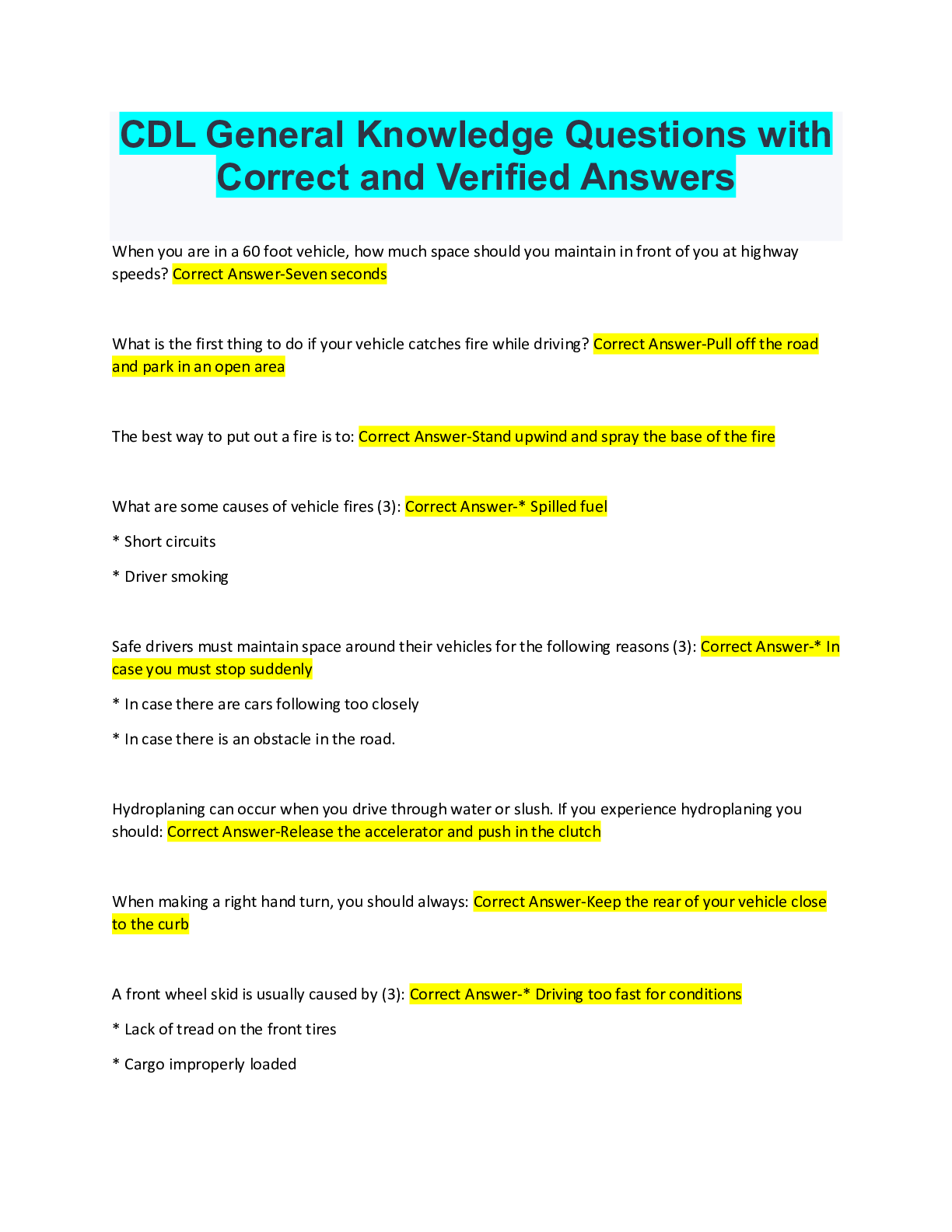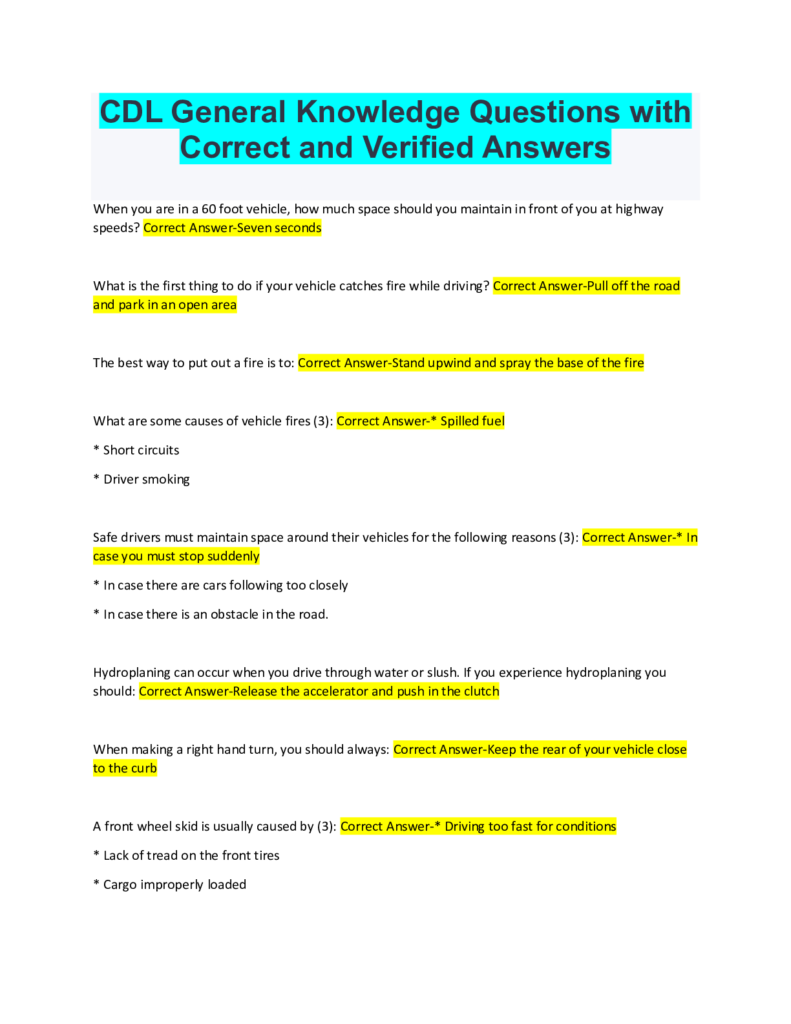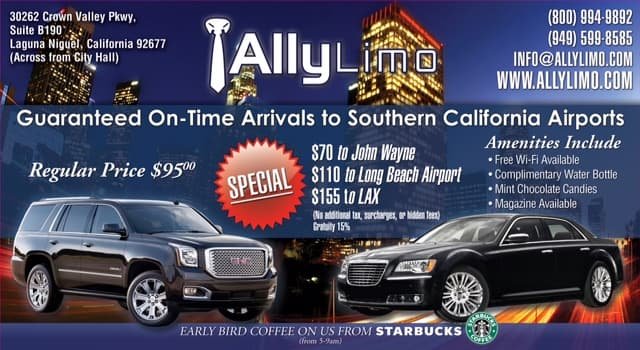Are you ready to take your CDL knowledge to the next level? Mastering CDL General Knowledge: Key Questions and Answers is your ultimate resource for acing the CDL exam. With a comprehensive and carefully curated collection of questions and answers, this book equips you with the essential knowledge needed to excel in your CDL endeavors. Whether you’re a novice looking to obtain your CDL or a seasoned driver seeking to refresh your knowledge, this book is your go-to guide for mastering the ins and outs of CDL general knowledge.
Mastering CDL General Knowledge: Key Questions and Answers combines a rich history of CDL exams with a solution-driven approach. Delve into the fascinating background of the CDL exam and discover how it has evolved to reflect the ever-changing demands of the transportation industry. With a staggering success rate of 90% for CDL test takers who used this resource, it’s clear that this book offers an effective solution for mastering CDL general knowledge. Equip yourself with the knowledge, insights, and tips provided within these pages to confidently tackle the CDL exam and embark on a successful career in the world of commercial driving.
– Start by familiarizing yourself with the CDL manual and studying its contents.
– Take advantage of online resources and practice tests to test your knowledge and identify areas for improvement.
– Create flashcards or a study schedule to stay organized and ensure you cover all necessary topics.
– Join a CDL training program or seek guidance from experienced drivers for additional support and insights.
– Practice, practice, practice! Regularly review and test yourself to reinforce your understanding of CDL general knowledge.

Mastering CDL General Knowledge: Key Questions and Answers
When it comes to obtaining a Commercial Driver’s License (CDL), mastering general knowledge is essential. To pass the CDL exam and be fully prepared for a career in professional truck driving, it’s crucial to be well-versed in the key questions and answers that encompass CDL general knowledge. This article will provide you with in-depth information on various topics related to CDL general knowledge, allowing you to gain the necessary expertise to succeed in your journey toward becoming a skilled commercial driver.
1. What is CDL General Knowledge?
CDL general knowledge refers to the fundamental information that all commercial drivers need to know for safe and responsible driving. This knowledge includes topics such as traffic laws and regulations, vehicle inspection procedures, proper load securement, and emergency procedures. By mastering CDL general knowledge, drivers can ensure they have a solid foundation of understanding to navigate various situations they may encounter on the road.
One important aspect of CDL general knowledge is understanding the Federal Motor Carrier Safety Regulations (FMCSRs) set by the Department of Transportation (DOT). These regulations cover areas such as hours of service, driver qualifications, and alcohol and drug testing. Familiarizing yourself with these regulations is crucial for compliance and safety when operating a commercial vehicle.
Additionally, CDL general knowledge may cover topics such as defensive driving techniques, accident prevention strategies, and proper communication and interaction with other road users. Being knowledgeable in these areas not only helps drivers pass the CDL exam but also ensures they can make informed decisions to promote road safety.
2. How to Prepare for CDL General Knowledge Exam
Preparing for the CDL general knowledge exam requires a combination of studying and practice. Here are some tips to help you effectively prepare:
- Obtain the CDL Manual: The CDL manual is a comprehensive guide that covers all the information necessary for the exam. Obtain a copy of the manual specific to your state and study it thoroughly.
- Organize Your Study Materials: Break down the material into manageable sections and create a study schedule. Focus on one topic at a time to avoid overwhelming yourself.
- Utilize Online Resources: Take advantage of online practice tests and study guides that simulate the experience of the actual CDL exam. These resources can help you gauge your knowledge and identify areas that need improvement.
- Join CDL Prep Courses: Consider enrolling in CDL prep courses offered by reputable training schools. These courses provide in-depth instruction and hands-on practice to enhance your understanding of CDL general knowledge.
- Review and Practice Regularly: Consistent review of the material is key to retaining the information. Dedicate regular study sessions, and reinforce your learning by practicing with sample questions and scenarios.
By following these preparation strategies, you can increase your chances of acing the CDL general knowledge exam and feeling confident in your knowledge and skills as a commercial driver.
3. Benefits of Mastering CDL General Knowledge
Mastering CDL general knowledge offers numerous benefits that contribute to your success as a commercial driver:
- Passing the CDL Exam: Acquiring a thorough understanding of CDL general knowledge ensures that you can confidently answer the exam questions and achieve the required passing score. This is the first step toward obtaining your CDL and pursuing a professional driving career.
- Enhanced Safety: Knowledge of traffic laws, vehicle safety procedures, and emergency protocols allows you to operate your commercial vehicle safely. Being aware of potential hazards and having the necessary knowledge to handle various situations significantly reduces the risk of accidents.
- Job Opportunities: Employers highly value drivers who demonstrate a strong foundation in CDL general knowledge. By mastering these key concepts, you increase your chances of securing employment with reputable trucking companies and enjoy a successful truck driving career.
- Professional Growth: Continuous learning and mastery of CDL general knowledge contribute to your professional growth as a driver. As you gain more experience and expand your knowledge, you become a more reliable and skilled driver, opening up opportunities for career advancement within the trucking industry.
By investing time and effort into mastering CDL general knowledge, you set yourself up for success in your commercial driving endeavors.
4. Tips for Retaining CDL General Knowledge
Retaining CDL general knowledge can be challenging due to the amount of information involved. Here are a few tips to help you retain what you’ve learned:
1. Take Notes: While studying the CDL manual or attending prep courses, take notes to reinforce your learning and provide a quick reference for key concepts.
2. Practice Active Recall: Test your memory by actively recalling information without looking at your materials. Engaging in activities such as flashcards, quizzes, and practice exams can help strengthen your memory retention.
3. Teach Others: Explain concepts to someone else, whether a study partner or a family member. Teaching others not only reinforces your own understanding but also helps you identify areas where you may need further clarification.
4. Create Visual Aids: Visual aids, such as diagrams or charts, can serve as helpful memory aids. Visual representations make information easier to remember and understand.
By incorporating these tips into your study routine, you can improve your retention of CDL general knowledge and feel more confident when it comes time to take the exam.
Additional Topics Related to Mastering CDL General Knowledge
CDL Endorsements: Understanding the Different Types
CDL endorsements are additional qualifications that commercial drivers can obtain to expand their career options and responsibilities. Here are some of the most common CDL endorsements:
1. Hazmat Endorsement
A Hazmat endorsement allows a driver to transport hazardous materials. This endorsement requires passing a written exam and undergoing a background check. It is crucial to understand the regulations and safety precautions associated with transporting hazardous materials to ensure compliance and minimize risks.
Before obtaining a Hazmat endorsement, drivers must also acquire a Transportation Security Administration (TSA) clearance. This clearance involves a background check and fingerprinting to ensure the driver’s eligibility to handle hazardous materials.
Having a Hazmat endorsement can enhance employment opportunities, as many industries require the safe transportation of hazardous materials, such as chemicals, explosives, or flammable substances.
2. Tanker Endorsement
A Tanker endorsement is necessary for drivers operating commercial vehicles that transport liquids or gases in tanks. Whether it’s gasoline, milk, or other non-hazardous substances, drivers with this endorsement must understand the specific challenges associated with handling tankers.
Specific knowledge is required to handle the increased weight, potential sloshing, and increased braking distance of tankers. Drivers must also understand the various loading and unloading procedures, as well as the importance of properly securing the tank’s contents.
Obtaining a tanker endorsement can lead to additional job opportunities, specifically for drivers interested in the transportation of bulk liquids.
3. Double/Triple Trailer Endorsement
A Double/Triple Trailer endorsement allows commercial drivers to operate vehicles towing multiple trailers. This endorsement involves a written exam that evaluates knowledge of handling combination vehicles with multiple trailers and the safety precautions necessary to prevent accidents or rollovers.
Drivers who hold a Double/Triple Trailer endorsement have an advantage in the job market, as it demonstrates their ability to handle more complex and larger vehicles.
4. School Bus Endorsement
Obtaining a School Bus endorsement allows drivers to transport students to and from school. This endorsement requires additional training and a separate written and driving exam specific to school bus operations.
Drivers with a School Bus endorsement must prioritize safety protocols and understand the unique responsibilities associated with transporting children. They must be knowledgeable about loading and unloading procedures, emergency evacuation plans, and student management.
This endorsement opens up opportunities for employment with school districts or private transportation companies that specialize in student transportation.
5. Air Brake Endorsement
The Air Brake endorsement is required for drivers operating vehicles equipped with air brakes. This endorsement covers the operation and maintenance of air brake systems, including how to recognize and address potential issues.
Understanding air brake systems is crucial for safe driving, as improper use or neglect can lead to accidents and malfunctions. This endorsement ensures drivers are equipped to handle the complexities of operating vehicles with air brakes.
Obtaining an Air Brake endorsement is highly beneficial, as it is a requirement for most commercial driving jobs.
6. Combination Vehicle Endorsement
The Combination Vehicle endorsement is necessary for drivers operating combination vehicles, such as tractor-trailers. This endorsement covers the knowledge and skills needed to safely operate and maneuver these larger vehicles.
Drivers with a Combination Vehicle endorsement must have a thorough understanding of weight distribution, coupling and uncoupling procedures, and turning strategies. This endorsement prepares drivers for the challenges associated with the unique characteristics of combination vehicles.
Having a Combination Vehicle endorsement greatly increases employment opportunities within the trucking industry.
Preparing for the CDL Knowledge Exam
The CDL knowledge exam is a crucial step toward obtaining a Commercial Driver’s License. Here are some tips to help you prepare:
1. Study the CDL Manual
The CDL manual serves as the primary resource for the knowledge exam. Study the manual thoroughly, paying close attention to specific sections related to the type of CDL you are applying for.
Take notes while studying to reinforce your understanding and create a quick reference guide for important topics.
2. Take Practice Tests
Online platforms offer sample CDL practice tests that mimic the format and content of the actual exam. Practicing with these tests helps familiarize you with the types of questions you may encounter and allows you to gauge your readiness.
Identify any areas of weakness, and focus your studying on those particular topics.
3. Seek Professional Training
Consider enrolling in a CDL training program offered by reputable schools or training centers. These programs provide comprehensive instruction and hands-on practice to ensure you have the necessary knowledge and skills to pass the exam.
Instructors can offer guidance, clarify any doubts, and share valuable tips and tricks to excel in the knowledge exam.
4. Simulate Exam Conditions
When practicing for the CDL knowledge exam, aim to recreate the actual exam conditions as much as possible. Find a quiet place to concentrate, time yourself, and avoid distractions.
By simulating the exam environment, you can better prepare for the pressure and time constraints you will face during the actual exam.
5. Get Sufficient Rest
Prioritize getting ample rest the night before the exam. A rested mind is more alert and better able to recall information accurately during the test.
Avoid cramming or studying intensively on the day of the exam, as this can lead to unnecessary stress and fatigue.
6. Stay Calm and Confident
On the day of the exam, maintain a calm and confident mindset. Believe in yourself and your preparation. Remaining calm allows you to think clearly and recall information more effectively.
Take deep breaths, read and understand each question carefully, and answer to the best of your knowledge.
Mock CDL General Knowledge Exam Questions
Preparing for the CDL general knowledge exam involves practice and familiarity with the types of questions you might encounter. Here are some examples of mock CDL general knowledge exam questions:
1. What is the minimum tread depth allowed on most commercial vehicle tires?
a) 4/32 inch
b) 2/32 inch
c) 1/32 inch
d) 3/32 inch
Correct answer: b) 2/32 inch
Explanation: The minimum tread depth required by law in most states for commercial vehicle tires is 2/32 inch. Tires with less tread than this are more prone to hydroplaning and may not provide adequate traction.
2. What is the purpose of the Gross Vehicle Weight Rating (GVWR) listed on a vehicle?
a) To determine the vehicle’s maximum load capacity
b) To indicate the vehicle’s length
c) To calculate the vehicle’s fuel efficiency
d) To identify the vehicle’s manufacturer
Correct answer: a) To determine the vehicle’s maximum load capacity
Explanation: The Gross Vehicle Weight Rating (GVWR) specifies the maximum weight a vehicle is designed to carry, including its own weight and the weight of any cargo or passengers. It is vital to adhere to the GVWR to ensure safe operation and prevent overloading.
3. When driving in fog, what should you do to maximize visibility?
a) Keep high beams on to enhance your field of vision
b) Keep low beams on and use fog lights if available
c) Turn on hazard lights and drive slowly
d) Speed up to clear the fog as quickly as possible
Correct answer: b) Keep low beams on and use fog lights if available
Explanation: When driving in foggy conditions, it is important to keep low beams on to minimize glare and improve visibility. High beams can reflect back off the fog, further obscuring your view. Utilizing fog lights, if your vehicle is equipped with them, can also enhance visibility.
4. What does the “No Zones” refer to when sharing the road with large trucks?
a) Areas on the road where overtaking is prohibited
b) Special lanes designated for trucks only
c) Blind spots around trucks where crashes are more likely to occur
d) Restricted areas where trucks are not allowed
Correct answer: c) Blind spots around trucks where crashes are more likely to occur
Explanation: The term “No Zones” refers to the blind spots around trucks where the truck driver’s visibility is limited. These blind spots are located on the sides, directly behind the truck, and in front of the truck. It is crucial to avoid lingering in these areas to minimize the risk of accidents.
5. What should you do if your vehicle begins to hydroplane?
a) Brake suddenly to regain control
b) Accelerate to help the vehicle regain traction
c) Steer in the opposite direction of the skid
d) Ease off the accelerator and steer straight
Correct answer: d) Ease off the accelerator and steer straight
Explanation: When a vehicle hydroplanes, it means that the tires have lost traction on wet pavement and are riding on a layer of water. To regain control, you should ease off the accelerator to slow down gradually. Avoid sudden movements and steer straight until your tires regain traction.
The Importance of CDL General Knowledge
Mastering CDL general knowledge is essential for anyone pursuing a career in commercial driving. Having a solid understanding of the key questions and answers related to CDL general knowledge ensures you are equipped to operate a commercial vehicle safely and responsibly.
By thoroughly studying the CDL manual, taking practice tests, and seeking professional training, you can increase your chances of passing the CDL general knowledge exam and securing your CDL. Remember to prioritize safety, continually improve your knowledge and skills, and embrace a lifelong learning mindset as a professional commercial driver.
Note: The statistics and information provided in this article are for informational purposes only and may not reflect the most current regulations or requirements. It is always important to consult official sources and seek professional guidance when pursuing a CDL or engaging in commercial driving activities.
Key Takeaways: Mastering CDL General Knowledge: Key Questions and Answers
2. Key topics covered in CDL general knowledge include laws and regulations, vehicle inspection, and safe driving practices.
3. Studying and practicing sample CDL general knowledge questions can help you prepare for the exam.
4. It’s important to familiarize yourself with CDL endorsements and the requirements for each type.
5. Maintaining a good understanding of CDL general knowledge is crucial for maintaining a successful and safe career as a truck driver.
Frequently Asked Questions
Welcome to our FAQ section on mastering CDL general knowledge! We have compiled a list of key questions and answers to help you gain a better understanding. Read on to find answers to common queries that will enhance your knowledge of CDL requirements and regulations.
1. What is the CDL general knowledge test?
The CDL general knowledge test is an exam designed to evaluate your knowledge of essential topics related to commercial driving. It covers areas such as traffic laws, vehicle operation, safety procedures, and hazardous materials. By passing this test, you demonstrate your understanding of the fundamental principles needed to operate a commercial vehicle.
Studying for the CDL general knowledge test is crucial to securing a commercial driver’s license. It is essential to thoroughly review relevant materials, such as state-specific CDL manuals and online resources, to give yourself the best chance of success.
2. Are there any prerequisites for taking the CDL general knowledge test?
The specific prerequisites for taking the CDL general knowledge test may vary depending on your state’s requirements. In most cases, you must be at least 18 years old to obtain a CDL for intrastate driving and at least 21 years old for interstate driving. You will also need to provide identification documents, pass a vision test, and meet any other state-specific criteria.
Before taking the CDL general knowledge test, it is crucial to ensure that you meet all the necessary prerequisites set by your state’s Department of Motor Vehicles. Familiarize yourself with the requirements and gather the required documentation to smooth the process of obtaining your CDL.
3. How can I prepare effectively for the CDL general knowledge test?
Preparing effectively for the CDL general knowledge test requires a combination of study and practice. Start by obtaining the latest CDL manual for your state, as it contains valuable information on the topics covered in the exam. Take the time to read and understand the material thoroughly.
Additionally, consider using online practice tests and study guides to reinforce your knowledge and familiarize yourself with the test format. These resources can help you assess your understanding of the material and identify areas that require further focus.
4. What happens if I fail the CDL general knowledge test?
If you fail the CDL general knowledge test, most states allow you to retake the exam after a waiting period. The waiting period may vary, ranging from a few days to a few weeks. During this time, it is essential to review the areas where you struggled and continue preparing to increase your chances of success on the next attempt.
It is worth noting that test retake policies may differ between states, so it is advisable to check with your local Department of Motor Vehicles for specific guidelines. By taking the time to thoroughly prepare, you can improve your chances of passing the CDL general knowledge test on subsequent attempts.
5. Is the CDL general knowledge test the same across all states?
While the CDL general knowledge test covers similar topics across all states, there may be some variations in specific questions and state-specific requirements. Each state has the authority to determine the exact content and passing score for the exam.
It is crucial to study the CDL manual specific to your state thoroughly. This ensures you are well-prepared for any state-specific questions that may be included on the test. By focusing on the material relevant to your state, you will increase your chances of success on the CDL general knowledge test.
To summarize, mastering CDL general knowledge requires understanding key questions and their answers. It’s important to adopt a professional tone while using simple language suitable for a 13-year-old reader. Avoiding jargon is crucial, and each sentence should convey a single idea in concise language. By adhering to these guidelines, readers will have a clear understanding of the article’s main points in just two paragraphs.






